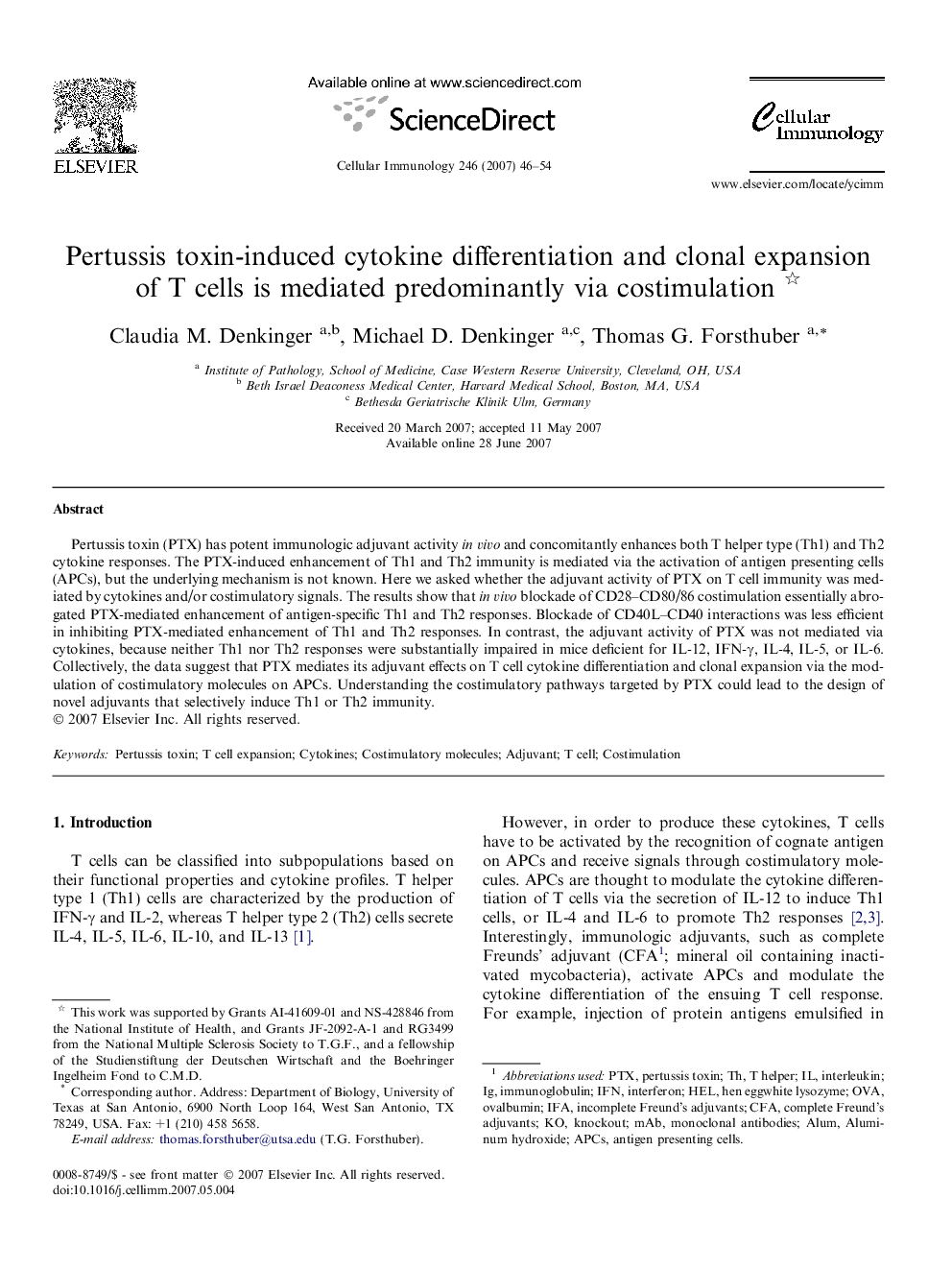| Article ID | Journal | Published Year | Pages | File Type |
|---|---|---|---|---|
| 2168037 | Cellular Immunology | 2007 | 9 Pages |
Pertussis toxin (PTX) has potent immunologic adjuvant activity in vivo and concomitantly enhances both T helper type (Th1) and Th2 cytokine responses. The PTX-induced enhancement of Th1 and Th2 immunity is mediated via the activation of antigen presenting cells (APCs), but the underlying mechanism is not known. Here we asked whether the adjuvant activity of PTX on T cell immunity was mediated by cytokines and/or costimulatory signals. The results show that in vivo blockade of CD28–CD80/86 costimulation essentially abrogated PTX-mediated enhancement of antigen-specific Th1 and Th2 responses. Blockade of CD40L–CD40 interactions was less efficient in inhibiting PTX-mediated enhancement of Th1 and Th2 responses. In contrast, the adjuvant activity of PTX was not mediated via cytokines, because neither Th1 nor Th2 responses were substantially impaired in mice deficient for IL-12, IFN-γ, IL-4, IL-5, or IL-6. Collectively, the data suggest that PTX mediates its adjuvant effects on T cell cytokine differentiation and clonal expansion via the modulation of costimulatory molecules on APCs. Understanding the costimulatory pathways targeted by PTX could lead to the design of novel adjuvants that selectively induce Th1 or Th2 immunity.
